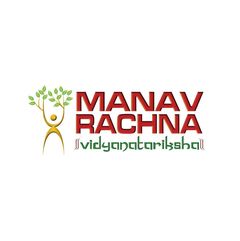Students in Master of Arts in Economics course are encouraged to apply for various internships or scholarship opportunities, workshops and training programs. We follow a hybrid and innovative teaching pedagogy through live field projects, workshops, action research, case studies, seminars, industry interface and guest lectures from both national and international experts aiming at holistic development of students.
In addition to the academic curricula, the department also operates ECOnomads, the economics society of MRIIRS. The departmental is also instrumental in publishing Eco-Bizz, a student-led scholarly magazine.
We lay tremendous stress on the inculcation of ethics, values and good governance skills in the students. Social responsibility and community service form an integral part of our culture.
A degree in economics from MRIIRS will open the door to various career pathways for the students. Apart from core courses, the department offers some unique courses such as Data Analysis through Computer (Excel and SPSS), Application of Statistical Software (R, LIMPED, STATA and E-Views), Environment & Resource Economics, Behavioral Economics, Public Budget & Fiscal Policy in India, Advanced Econometrics etc. We have a fantastic team of knowledgeable and experienced teachers teaching Economics masters courses.
Eligibility
For 2-Year programme: 45% marks or equivalent CGPA in 3- Year Bachelor Degree in any discipline from a recognized University.
For 1 Year programme: 45% marks or equivalent CGPA in 4-Year Bachelor Degree with Hons./Hons. with Research in any discipline from a recognized University.
Programme Highlights
- Experiential and interactive approach for curriculum delivery
- Equipped with state-of-the-art Psychological Laboratory and Testing Facilities
- Social Action Research Centre (SARC)
- 360-degree coaching & mentoring
- Perfect blend of industry-academia exposure
- Well-equipped library with sufficient number of books
- Vedic Mathematics has been included in the curriculum to encourage students to be more creative at problem solving by using more than one method for a particular situation.
- Community Service
- Field Immersion Projects for better understanding which includes Orientation Programme, Concurrent Field Work, Rural Camp, Block Field Work, and Supportive fields instructions/ Skill Development Workshops.
- Life Skills Training (LiST) to equip students with general self-management skills and social skills
- Trained faculty from different academia and research organizations
Career Path
- After graduating with an economics degree, individuals have a wide range of career paths to explore. Many graduates find themselves well-suited for roles in finance, such as investment banking, financial analysis, or risk management. Others may pursue careers in consulting, where their analytical and problem-solving skills can be applied to help businesses optimize their strategies. Government agencies and international organizations also value economists for their expertise in policy analysis and economic research.
- Additionally, some graduates choose to pursue further education, such as a master's or doctoral degree in economics, to deepen their knowledge and open up opportunities in academia or research institutions. Ultimately, an economics degree provides a solid foundation for a diverse range of careers and offers opportunities for growth and advancement in various sectors.
In a nutshell, students can opt for careers in the following areas/places:
- Academia-Teaching Profession
- Policy Research Institutes & Think Tanks
- Banking/Non-banking Financial Institutions
- International Organizations
- NGOs
- Subject Expert/Consultancy
- Government Cadre- IES, RBI, Ministry of finance, Department of Economic Affairs, etc.
- Corporate Sector
- Journalism and Mass Communication
- Entrepreneur
- Policy Analyst
- Data Analyst
- Risk Analyst
- Financial Analyst
- Big Data Analyst
- Market Research Analyst
Programme Outcomes (PO’s)
- PO1 Gain a firm grasp of knowledge on economics for insight into the complexities, dynamics and challenges of current economic scenarios;
- PO2 Comprehend with the empirical applications using relevant quantitative techniques to support contemporary economic arguments;
- PO3 Apply analytical framework for economic enquiry and decision-making by appropriate consideration of social and environmental welfare;
- PO4 Analyze the economic issues and articulate policy options by engage in reflective and independent thinking;
- PO5 Evaluate new economic ideas in life-long process of learning through research and development;
- PO6 Model the perspective of economic thought by aiding in disciplinary growth and policy making.
Program Specific Outcomes (PSO’s)
- PSO1 Accomplish a deep understanding of core economic principles to relate wide range of real-world issues;
- PSO2 Develop analytical aptitude with modern quantitative tools necessary to understand the economic arguments;
- PSO3 Instill lifelong learning skills for policy modelling and analysis of factual issues of the economy.
USPs
- The department offers a highly creative and enriching course curriculum blended with theoretical and practical aspects of economics. We carefully selected courses that offer diverse issues and also cover various optional elective courses for the students to harness the core skills in the subject. The department also offers various generic, inter-disciplinary and open electives courses from other streams such as management, liberal arts, sociology, and psychology, among others.
- We have industry driven curriculum-seeking and incorporating feedbacks from KPMG, Ernst and Young, Infosys, IHC Foundation and ORF Kolkata. In order to strengthen the foundation of applied research, we are in partnership with TERI SAS, TERI, IMPRI, RIS, IIFT, JNU and DSE.
Benefits
- Obtaining an economics degree offers numerous benefits and opens up a wide range of opportunities. Firstly, it equips individuals with a strong foundation in economic principles, enabling them to analyze and understand complex market dynamics. This knowledge is highly sought after by employers in various sectors, including finance, consulting, and government.
- Additionally, an economics degree develops critical thinking, problem-solving, and quantitative skills, which are transferable to diverse career paths. Graduates with an economics background are often equipped to make informed decisions in business settings, contribute to policy development, and even pursue advanced studies in economics or related fields. Ultimately, an economics degree provides a versatile skill set that can lead to rewarding and intellectually stimulating career options.
